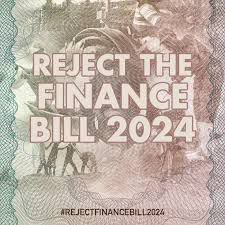The finance bill of 2024 has been met with significant opposition due to its provisions for high taxation, which many attribute to the economic policies of President William Ruto.
Critics argue that the increased taxes outlined in the bill disproportionately burden the middle and lower-income segments of the population, exacerbating economic hardships and stifling growth. The proposed tax hikes on essential goods and services are seen as detrimental to the already strained financial conditions of ordinary citizens, leading to widespread discontent and calls for the bill’s rejection.
Opponents of the bill contend that the government’s approach to revenue generation lacks consideration for the economic realities facing many Kenyans.
They argue that instead of imposing heavier taxes, the government should focus on curbing corruption, improving efficiency in public spending, and fostering a more conducive environment for business and investment. The rejection of the finance bill 2024 is a clear message from the populace and their representatives that the current trajectory of high taxation is unsustainable and requires a more balanced and equitable strategy to ensure economic stability and growth.


